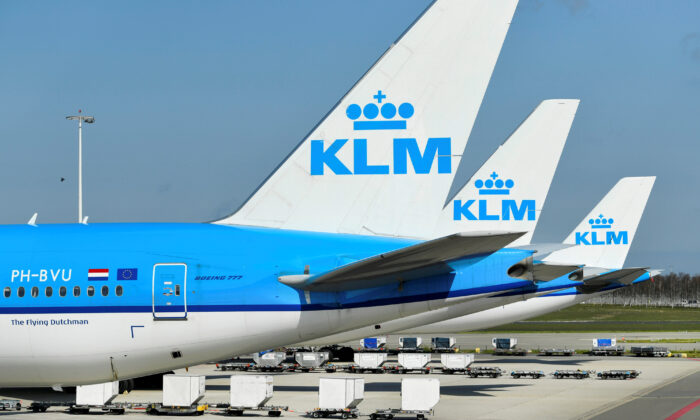KLM, Dutch Airline, Requests EU Intervention Regarding China’s Unfair Competition
Chinese airlines have benefited from shorter flight times, lower costs, and access to Russian airspace in the past two years.
KLM Royal Dutch Airlines has raised concerns to the European Union about facing “unfair” competition from Chinese airlines.
In response to Russia closing its airspace to most European airlines in 2022 due to sanctions, European airlines have had to take longer routes, resulting in increased flight times and costs.
Rintel highlighted that this diversion adds between two to four hours to KLM’s flights, impacting prices.
On the other hand, Chinese, Middle Eastern, and other airlines have enjoyed shorter routes and lower costs by utilizing Russian airspace, along with receiving substantial government subsidies.
A spokesperson for Lufthansa has urged EU policymakers to develop a new industrial strategy to address the disparity in competition faced by European airlines.
British Airways also announced in August the suspension of flights between London and Beijing from Oct. 26 until November 2025.
Analysts believe that if the EU enforces measures to counter China’s competitive advantage in the aviation sector, it could prove effective if EU countries act in unison.
They argue that recent tariff increases by the EU on Chinese electric vehicles indicate a willingness to address unfair practices in various industries.
They also note a trend of Western airlines reducing flights to China, reflecting concerns about safety and other competitive disadvantages.
Experts suggest that European countries may further reduce flights to China, aligning with broader international efforts to counter Chinese and Russian aggression.
Geopolitical Factors
Recent developments highlight the growing tensions between China, Russia, and Western countries, prompting airlines to adjust their operations accordingly.
This shift in aviation routes and policies reflects broader geopolitical challenges and the need for a coordinated response to address unfair competition.

An F-16 fighter jet arrives at Volkel Air Base after a farewell tour in Volkel, the Netherlands, as the Royal Netherlands Air Force retires its F-16 jets, on Sept. 27, 2024. Koen van Weel/ANP/AFP via Getty Images
Recent statements from NATO officials and European leaders underscore the need for a unified response to China and Russia’s actions in conflict zones.
Analysts predict further escalations in tensions between China, Russia, and Western countries, with potential consequences for global aviation and trade.
Luo Ya and Reuters contributed to this report.





